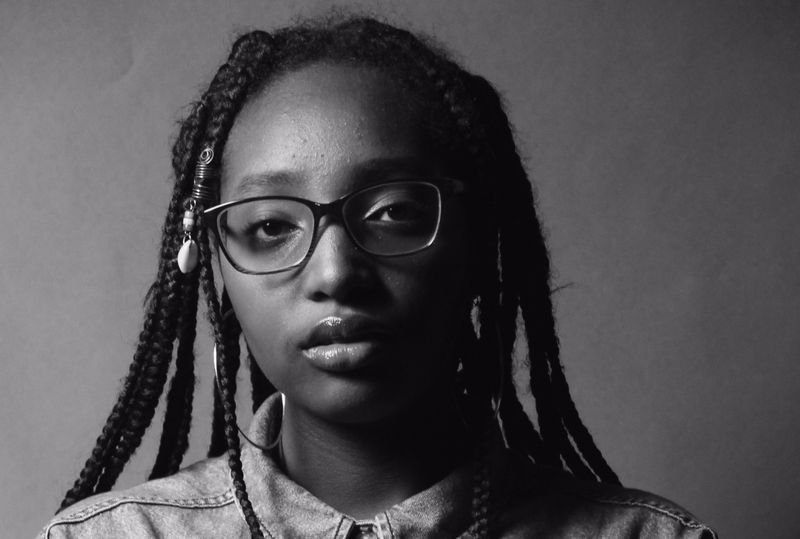We Are America
A Masked Paradise
By Lucie

Lowell High School, Lowell, Massachusetts
I didn’t know the word racism until I was nine years old. I always knew what racism was, but I could never really define it.
I was born in the Democratic Republic of the Congo, a place where violence was just part of life. This was the way I thought the world was. That in all parts of the world there was no peace.
I have very few memories of the DRC. I remember when my cousin and I would run around the house laughing. I escaped my country when I was two and became a refugee. I lived in Rwanda in a refugee camp where we were given food and a tent to live in. When I was four, we moved to Uganda. Growing up, I always hoped that there must be a place where everything wasn’t so violent and people were kinder.
My family always talked about how America was this beautiful place where you could become anything. They described it like paradise. So in my head that’s what I pictured, a place where everyone was happy, living their dreams, and most of all, it was a place without violence.
In Uganda we applied for an American visa. It took five and a half years, but then finally we got the opportunity to come to America. When I arrived in America at the age of eight, it was summer. I felt the sun warm on my skin and the sounds of birds chirping. Inside, I felt that this was going to be a place that I would call home. It was a dream come true, not only for me, but also for my family, the place where we had always fantasized about living, had become a reality.
A year passed and I came to realize it wasn’t always a paradise, and sadly it was also a place of violence and discrimination.
I remember I was in 6th grade and our class was in the school auditorium. I had gotten up from my seat to use the restroom. When I came back someone else was sitting in my seat. I asked them if I could sit back down, but the girl told me not to touch her, to get away from her, and that my skin was “dirty.”
I didn’t really understand what she meant. I remember thinking I always take a shower, how can my skin be “dirty.” I had never seen my skin that way and no one had never told me that. I then started to think that she was right, her skin wasn’t dark like mine, no, her skin was almost the color of vanilla ice cream. How could my “dirty” dark skin compare to her lovely white skin.
As I grew up in America, I started to see how African-Americans were treated differently. In the Congo, and Rwanda, and Uganda I looked like the majority of people, we all had the same skin color. But here, I’m now a minority. I started to understand what racism was. I saw this in the news and on social media. I too, also continued to notice how people would treat me differently. I couldn’t understand how a place that was supposed to be almost “heavenly” could be so different from what people had told me.
But I also realized, in seeing racism in America, that the same thing had been happening in my country, I just hadn’t been aware of it. In the Congo we have so much tribal fighting, but I hadn’t realized that it was a form of racism. We sometimes need to step back from our surroundings to better understand our experiences. The world may not be as we want it to be, but we can take from it, learn from it, and then work to make it better.
© Lucie. All rights reserved. If you are interested in quoting this story, contact the national team and we can put you in touch with the author’s teacher.